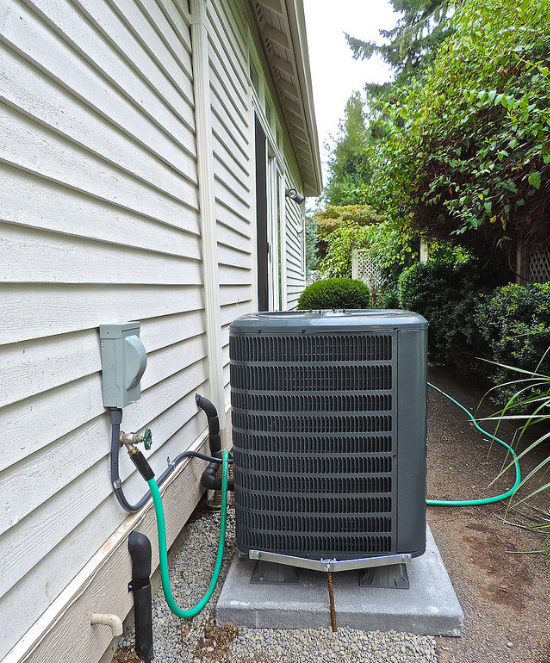Finally! Summer is coming - that’s the good news. The not so good news is that we may have some days where the heat may be more than we care to bear.
More good news - we live in the Pacific Northwest! Unlike the folks in Arizona or Florida where air conditioning is almost a necessity, we have more freedom to choose. We also have more time to sort through our options and make the right choice rather than being forced to rush out and get an air conditioner as soon as June arrives.
So, let’s talk about choices and other considerations:
The first thing to consider is choosing between a traditional air conditioner and a heat pump. Let’s stop drooling about that warm summer sun for a minute and think about the year-round comfort of your home temperature.
From a budgeting standpoint, a heat pump will probably put a bigger dent in your checkbook than an air conditioner, so understand the pros and cons before ponying up with the extra cash.
During the summer, the heat pump and the air conditioner are virtually the same with respect to energy savings so we must take winter heating needs into consideration. Heat pumps provide an economical source of heat when the temperature is above 30 degrees. Below that, your furnace will kick in as the backup heat source. If your current furnace is not energy efficient, a heat pump can lower your energy costs.
So, let’s get back to the air conditioning aspects since they’re independent of your choice of cooling units. Here are some things to consider:
Sizing the A/C or Heat Pump – This is where expert advice comes in handy. If you’re replacing an old unit, don’t automatically assume you need one the same size. Improvements in energy efficiency in the last decade could easily mean a smaller unit will be sufficient to get the same results.
Location of Outside Air Intake and Exhausts – Your cooling equipment utilizes outside air to dilute and exhaust air contaminants from indoors. If the outside air intakes are located too close to heavily trafficked streets, garbage bins or plumbing vents, the outside air can introduce contaminants into the home.
Air Filter Selection - Filters are available in a wide range of efficiencies. The greater the efficiency of the filter, the higher the energy costs will be to power the unit. Air filters should be selected based on the expected contaminants from the outdoor environment surrounding your home.
Duct Construction and Leakage Testing - Ductwork must be properly constructed to minimize resistance to the airflow because such resistance will reduce the amount of conditioned air reaching the home’s living spaces. Leaks in the air supply ducts also reduce the amount of conditioned air where it’s needed. Leaks in the return ductwork can pick up contaminants as they pass through the unconditioned areas of the home such as attics and crawl spaces. Having an expert check for ductwork leakage is usually a great investment.
Air Distribution – Your system is designed to distribute conditioned air throughout the living spaces. Interrupting the smooth distribution of conditioned air can result in drafty areas, pockets of stagnant air and an overall decrease in indoor air quality. The system needs to be balanced so that sufficient conditioned air reaches all rooms.
Ductless heat pumps – This type of heat pump can provide improved cooling and heating to homes with insufficient ductwork. A ductless heat pump can lower energy costs 25-40% when replacing electric baseboard heat.
Today’s air conditioning and heat pump systems are designed to operate close to their maximum capacities to maximize their efficiency. They have become more complex than earlier systems as technology has allowed them to achieve a delicate balance between energy use and indoor air quality. Proper operation of these systems depends on regular maintenance by a skilled technician.
Before the heat of the summer months becomes too intense, it’s probably a good idea to bring in a cooling and heating expert for a thorough evaluation of your needs. Check out South West Plumbing’s website at www.southwestplumbing.biz and read some of the great reviews. It could save you lots of money and headaches.
This article was provided to KING 5 by South West Plumbing


